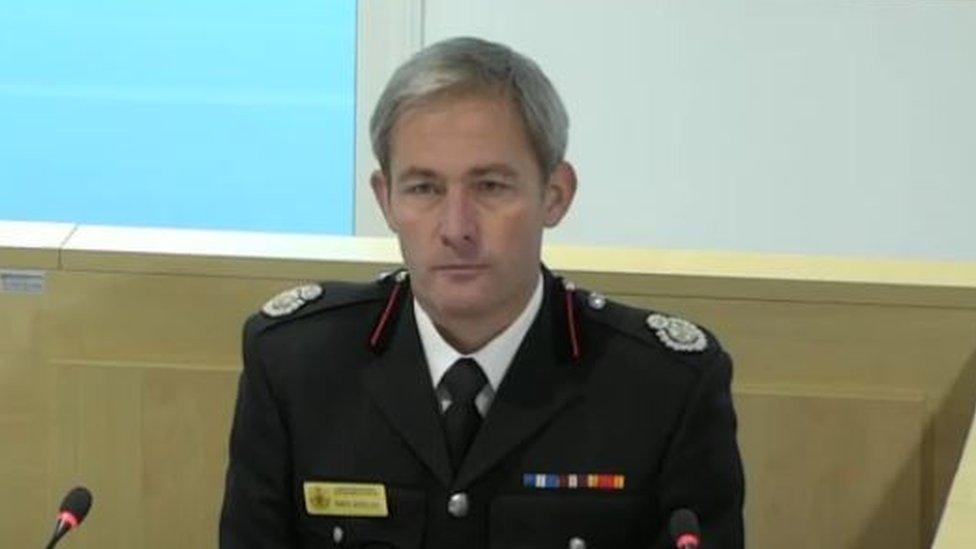Manchester Arena Inquiry: Bomb scene needed more paramedics - expert
- Published
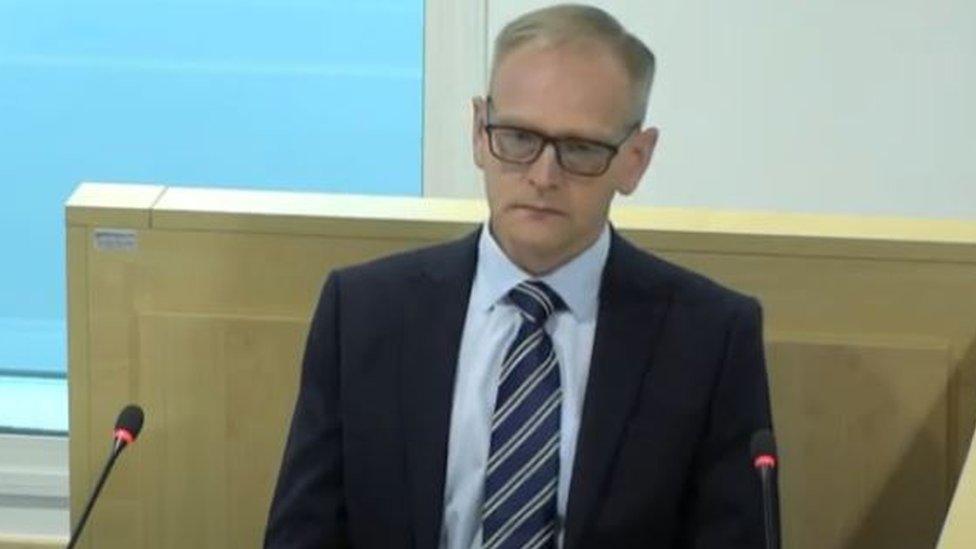
Ambulance expert Christian Cooper was giving evidence at the Manchester Arena Inquiry
Critically injured casualties of the Manchester bombing would have been treated and moved more quickly if more specialist paramedics were sent to the scene, an expert has said.
Only three paramedics were sent into the venue's foyer area where the bomb exploded, an inquiry heard.
Ambulance expert Christian Cooper said it was "not sufficient".
He also said North West Ambulance Service should have made a specific attendance plan for a terrorist attack.
Twenty-two people died and hundreds more were injured when bomber Salman Abedi detonated a device at the end of an Ariana Grande concert on 22 May 2017.
Two of the three paramedics in the foyer were members of the specialist Hazardous Area Response Team who were helping to triage casualties.

Twenty-two people were killed in the May 2017 bombing
However, Mr Cooper said deploying the other members of the team - who were available - would have been more effective.
He told the inquiry: "The triage process would have been faster and I think the identification and management of the extrication of casualties would have been more decisive.
"It would have been more rapid and more effective.
"There is a significant difference between two individuals from that team fulfilling a function and five fulfilling a function."
Scores of casualties were carried away from the bomb scene on makeshift stretchers including tables and crowd barriers.
The final person was evacuated from the foyer around 70 minutes after the detonation.
Mr Cooper also argued the ambulance service should have had a site-specific plan for the Manchester Arena in 2017.
"Given its size, given its coterminous location with a transport hub and other factors as well, yes, I would have expected a site specific plan."
Fellow ambulance expert Michael Herriot told the inquiry into the atrocity there were not enough first aiders on duty on the night of the bombing.
Private company Emergency Training UK provided medical provision for events at the venue.
Mr Herriot said the skills of their staff "did not meet the standards recommended in their industry code of practice" and there was "a deficit of leadership".
The inquiry heard there was a "significant failure" by NWAS to learn the lessons from several training exercises held in the two years before the arena attack.
A number of problems highlighted in training were repeated on the night of the arena bombing - an issue which was discovered across all emergency services.
Mr Cooper agreed it represented a "significant failure".
The inquiry continues.

Why not follow BBC North West on Facebook, external, Twitter, external and Instagram, external? You can also send story ideas to northwest.newsonline@bbc.co.uk
- Published8 September 2021
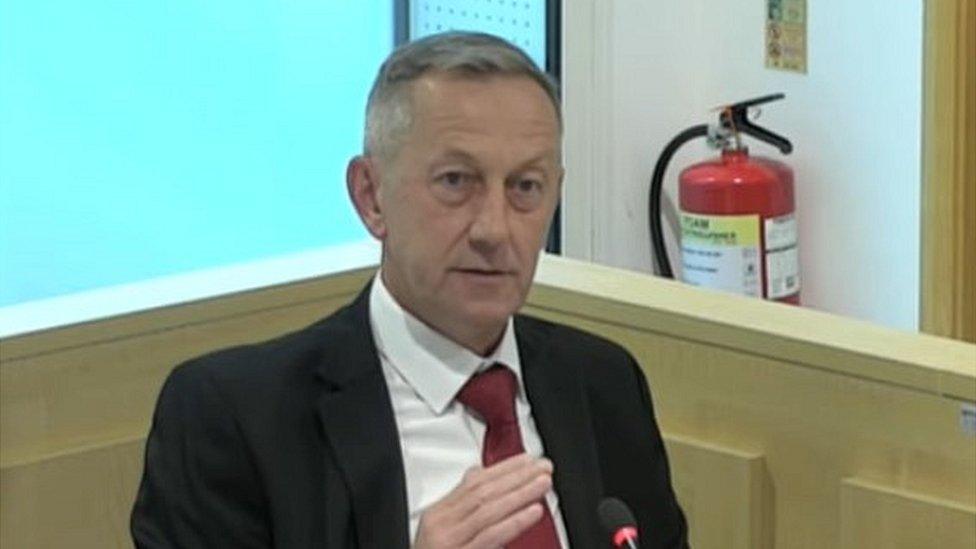
- Published6 September 2021
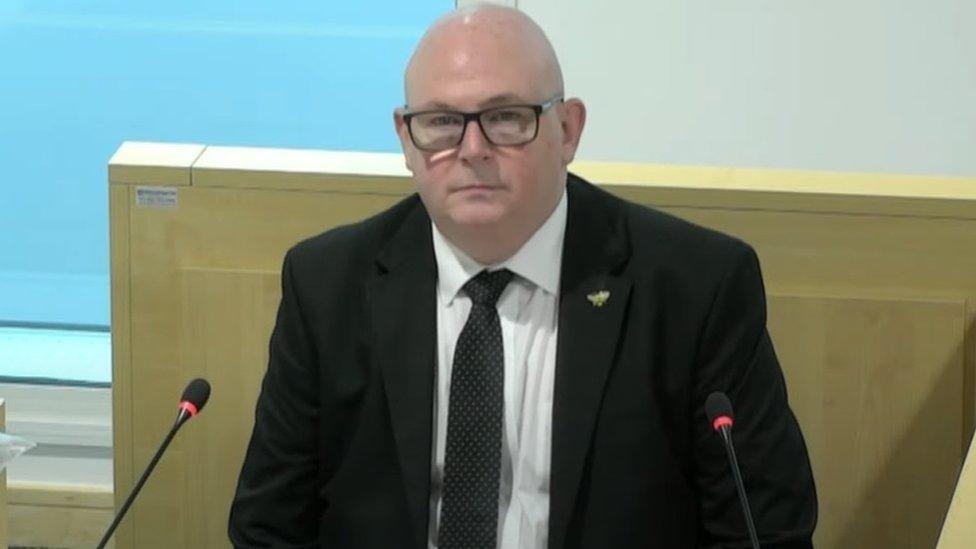
- Published3 September 2021
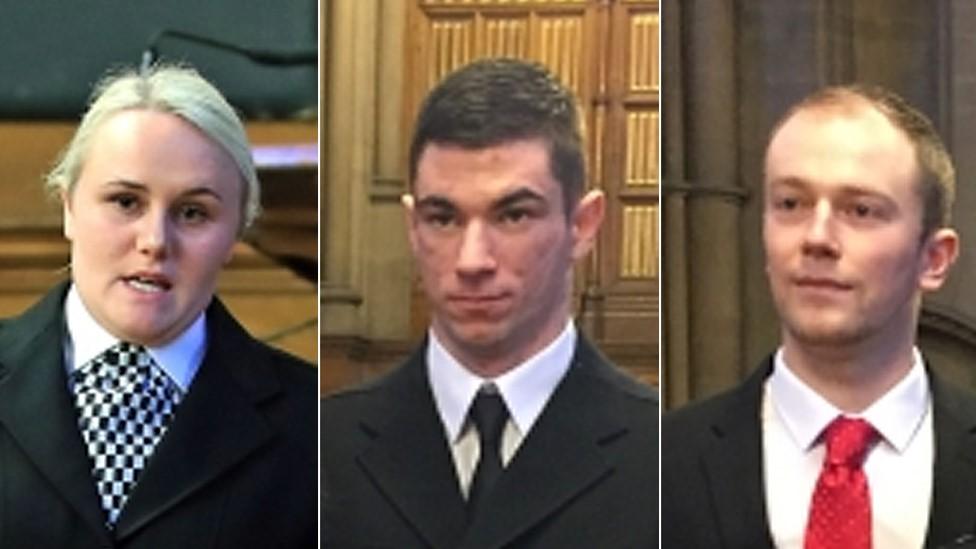
- Published21 July 2021
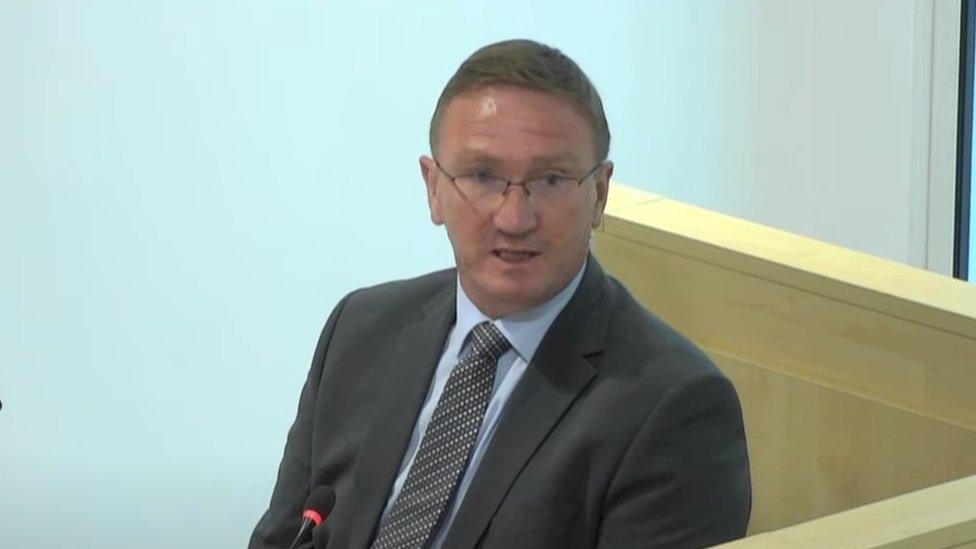
- Published20 July 2021
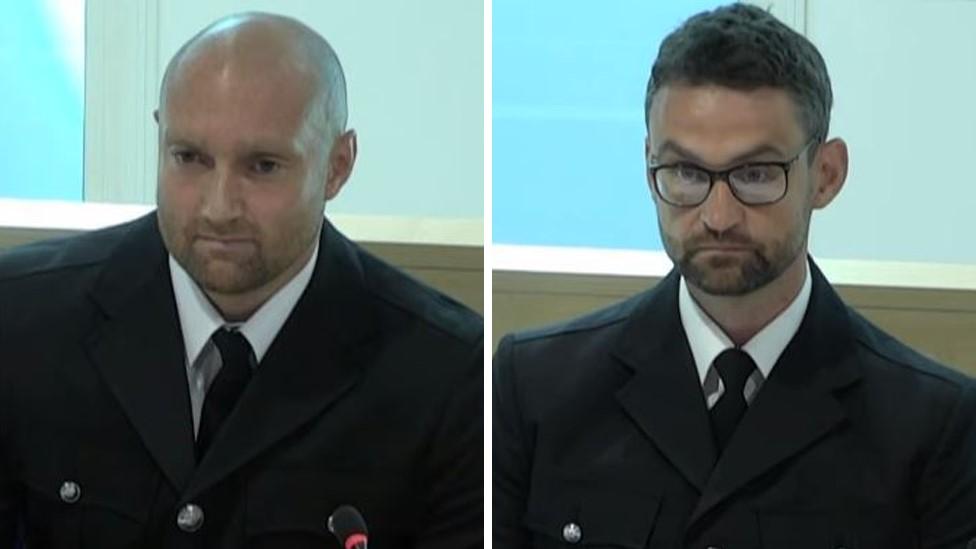
- Published19 July 2021
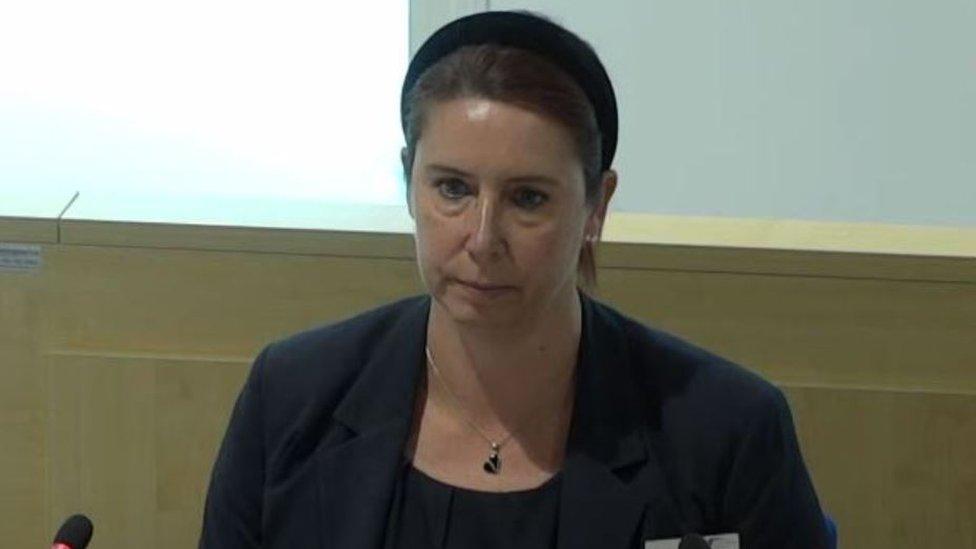
- Published15 July 2021
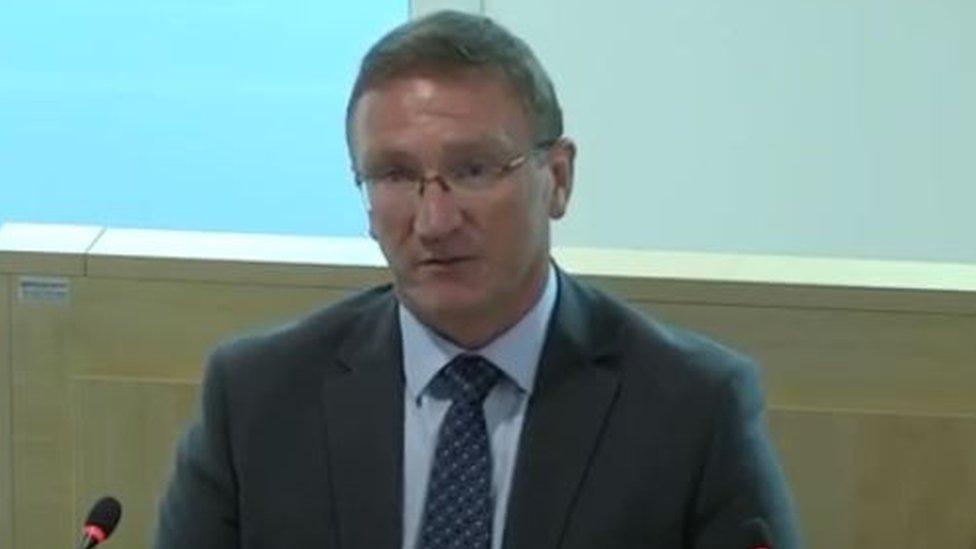
- Published14 July 2021
